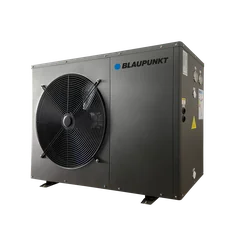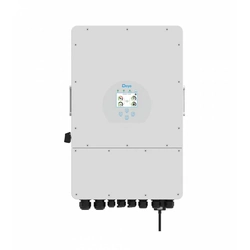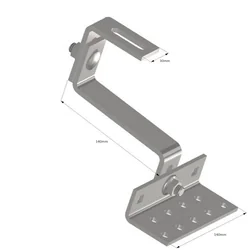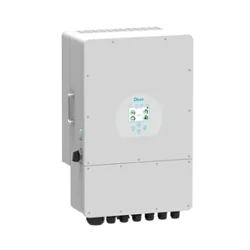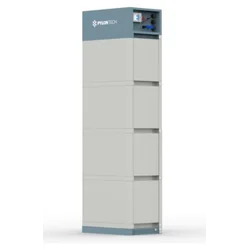The European Green Deal: A Bold Vision for a Sustainable Future
The European Green Deal: A Bold Vision for a Sustainable Future
The European Green Deal is an ambitious plan by the European Union to achieve climate neutrality by 2050. Launched in December 2019, the initiative aims to transform the EU's economy and society by promoting sustainable growth, reducing greenhouse gas emissions, and fostering innovation in clean technologies. The Green Deal encompasses a wide range of policy measures, including investments in renewable energy, energy efficiency, sustainable transportation, and circular economy practices.

Tigo TS4-A-O effektoptimerare (för moduler med maximal effekt 700 W)1500V

VARIO takkrok för solceller med dubbel justering 140mm tjock 1.4016
The European Green Deal – Opportunities for Industrial Entrepreneurs
The European Green Deal – Opportunities for Industrial Entrepreneurs
The European Green Deal presents numerous opportunities for industrial entrepreneurs to capitalize on the growing demand for sustainable products and services. The transition to a low-carbon economy will require significant investments in clean technologies, such as renewable energy, electric vehicles, and energy-efficient building materials. This shift presents a unique opportunity for businesses to develop innovative solutions that can help the EU achieve its climate goals while also creatingnew markets and job opportunities.
Moreover, the Green Deal includes various funding mechanisms, such as the Just Transition Fund and the European Investment Bank's increased focus on climate action, which can provide financial support for businesses looking to invest in sustainable projects. By aligning their strategies with the European Green Deal's objectives, industrial entrepreneurs can position themselves to benefit from these funding opportunities and gain a competitive edge in the market.

Special Bi-Metal M6x25 självgängande skruv för trapetsformade broar

DIN fyrkantsmutter 557 M8 för klämmor / profiler i rostfritt stål A2 AISI304 kilspår

GROWATT Off-grid inverter SPF 6000ES PLUS, 48VDC MPPT 100A, WiFi
The European Green Deal – Challenges and the Path Forward
The European Green Deal – Challenges and the Path Forward
While the European Green Deal offers significant opportunities for industrial entrepreneurs, it also presents challenges. Businesses will need to adapt to new regulations and standards aimed at reducing emissions and promoting sustainability. This may require investments in research and development, as well as the adoption of new technologies and processes.
To succeed in this new landscape, industrial entrepreneurs must embrace innovation and collaboration. By partnering with research institutions, policymakers, and other stakeholders, businesses can develop and implement sustainable solutions that not only meet regulatory requirements but also create value for their customers and shareholders. In doing so, they can contribute to the EU's ambitious climate goals while securing a prosperous future for their enterprises.
SOFAR batterimodul 5 kWh BTS-5K (BTS 5K)

Jinko Tiger Neo N-Typ JKM445N-54HL4R-V (445 W, svart ram)

JA Solar JAM54D41 445/LB 445W Högeffektiv Mono Bifacial Full Black (behållare)

